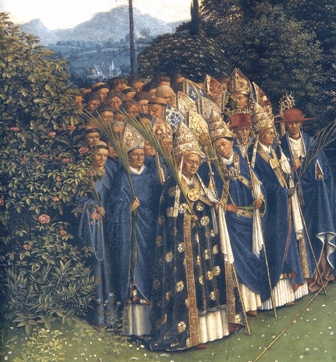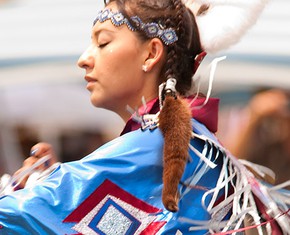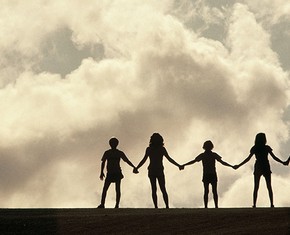The views expressed in our content reflect individual perspectives and do not represent the authoritative views of the Baha'i Faith.
 For centuries people of faith separated themselves into two distinct classes – clergy and laity. In the past these definitions of ‘elite’ and ‘common’ members permeated the structures of many faiths, including Judaism, Buddhism, Christianity and Islam. Monks, priests, ministers, rabbis, imams and mullahs – the professional clerical class, specially-trained and selected to instruct and lead the religious rank-and-file – possessed enormous prestige and power. They often had exclusive access to education; could read and write unlike the illiterate followers they led; were initiated into the mysterious, mystical rites of their orders; and enjoyed special status and standing in society.
For centuries people of faith separated themselves into two distinct classes – clergy and laity. In the past these definitions of ‘elite’ and ‘common’ members permeated the structures of many faiths, including Judaism, Buddhism, Christianity and Islam. Monks, priests, ministers, rabbis, imams and mullahs – the professional clerical class, specially-trained and selected to instruct and lead the religious rank-and-file – possessed enormous prestige and power. They often had exclusive access to education; could read and write unlike the illiterate followers they led; were initiated into the mysterious, mystical rites of their orders; and enjoyed special status and standing in society.
In historical terms, having a clergy sometimes made sense. Because class and caste restricted education to a few, because even the educated couldn’t access written material, and because most people – women, slaves, peasants – typically had few rights or opportunities to gain any formal knowledge, the clergy’s useful role of interpreting the Word, leading the faithful and instructing the laity saturated faith traditions for most of human history.
But the power of the clergy often led, unfortunately, to corruption. The original intent of the Prophets, the Manifestations of God who initiated the spiritual teachings of their Faiths, became corrupted and lost when religious leaders perpetrated authoritarian fanaticism, manufactured ritual, promoted disunity and schism, abused their authority and even started religious wars. And when lay people gave clergymen the right to define their faith, to declare those they disagreed with as heretics, to determine and usurp the individual’s obligations to God and to interpret the laws of their faith’s Founder for them; then throughout history those clergymen developed systems of rank and hierarchy, with honor and recognition going to those at the top. Then, inevitably, their clerical offices become prestigious, powerful – and lucrative.
In contrast, the Baha’i Faith:
…has no clergy, no religious ceremonial, no public prayers; its only dogma is belief in God and in his Manifestations…. Ritual holds no place in the religion, which must be expressed in all the actions of life, and accomplished in neighborly love…. No one has the power to receive confession of sins, or to give absolution. The priests of the existing religions should renounce celibacy, and should preach by their example, mingling in the life of the people. – Tablets of Abdu’l-Baha v. 3, p. 66.
 Instead of clerical orders or an anointed leadership class, Baha’is elect their leadership democratically. At the local level, Baha’is around the world vote annually for the nine members of their Local Spiritual Assembly, which takes care of the needs of the community – but nobody on that Spiritual Assembly has any personal power or authority. At the national level, the same process takes place; and at the global level, Baha’is elect The Universal House of Justice, which administers the affairs of the Baha’i world. No one person wields any power or authority.
Instead of clerical orders or an anointed leadership class, Baha’is elect their leadership democratically. At the local level, Baha’is around the world vote annually for the nine members of their Local Spiritual Assembly, which takes care of the needs of the community – but nobody on that Spiritual Assembly has any personal power or authority. At the national level, the same process takes place; and at the global level, Baha’is elect The Universal House of Justice, which administers the affairs of the Baha’i world. No one person wields any power or authority.
But independence also means individual responsibility, so the Baha’i teachings don’t just promote democratic principles — they also emphatically encourage all human beings to independently investigate and determine their own spiritual beliefs. Baha’is strongly believe in the principle of independent investigation of the truth:
…God has created in man the power of reason, whereby man is enabled to investigate reality. God has not intended man to imitate blindly his fathers and ancestors. He has endowed him with mind, or the faculty of reasoning, by the exercise of which he is to investigate and discover the truth, and that which he finds real and true he must accept. He must not be an imitator or blind follower of any soul. He must not rely implicitly upon the opinion of any man without investigation; nay, each soul must seek intelligently and independently, arriving at a real conclusion and bound only by that reality. – Abdu’l-Baha, The Promulgation of Universal Peace, p. 291.
Commentators have called the Baha’i Faith “the religion for independent thinkers” and “the democratic religion,” not only because it has no clergy, but because it asserts the essential agreement of science and religion and encourages and exalts the use of the intellect in matters of faith:
Just as in the world of politics there is need for free thought, likewise in the world of religion there should be the right of unrestricted individual belief. Consider what a vast difference exists between modern democracy and the old forms of despotism. Under an autocratic government the opinions of men are not free, and development is stifled, whereas in democracy, because thought and speech are not restricted, the greatest progress is witnessed. It is likewise true in the world of religion. When freedom of conscience, liberty of thought and right of speech prevail — that is to say, when every man according to his own idealization may give expression to his beliefs — development and growth are inevitable. – Abdu’l-Baha, Promulgation of Universal Peace, p. 197.
















Comments
Sign in or create an account
Continue with Googleor